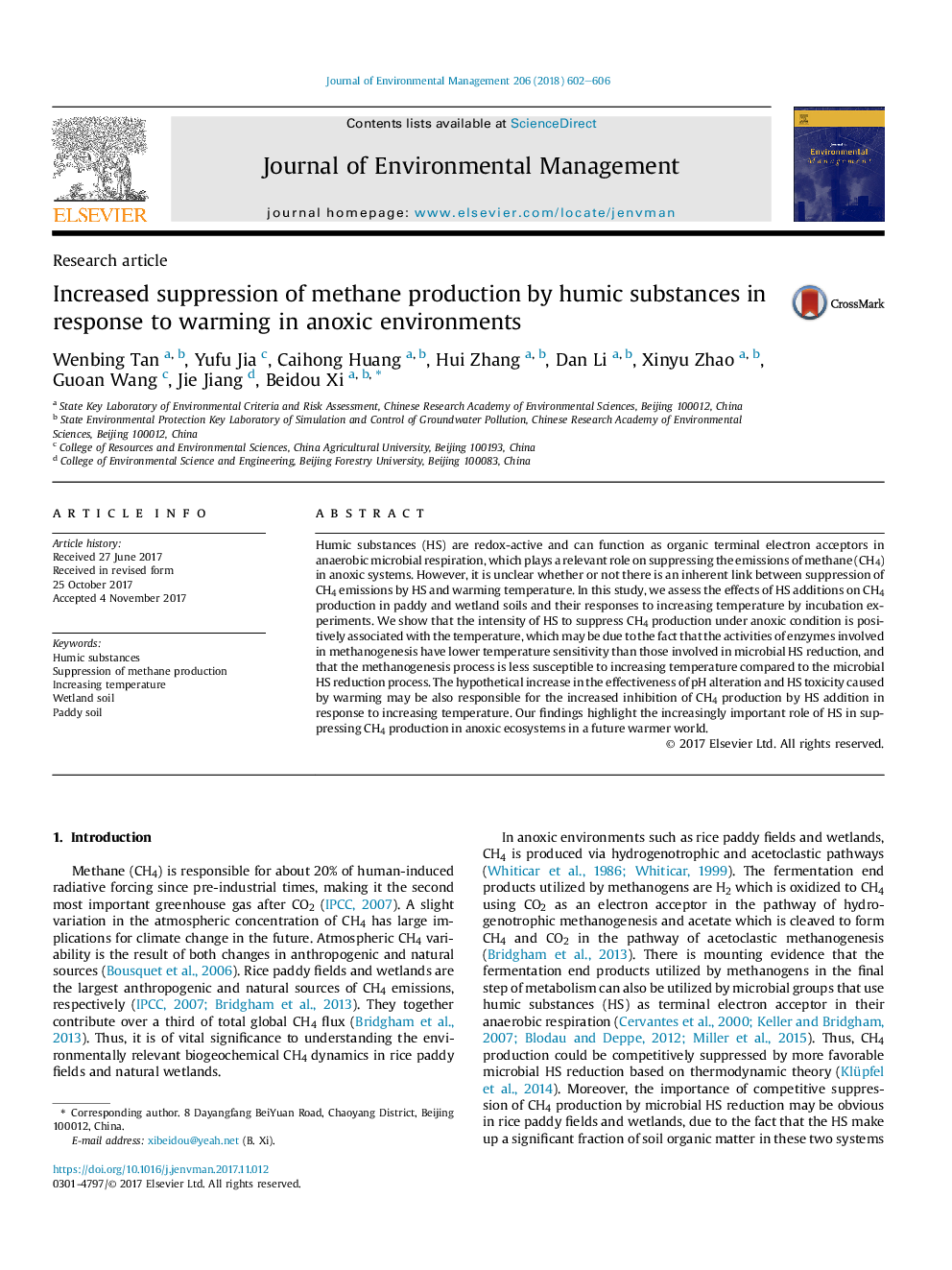| Article ID | Journal | Published Year | Pages | File Type |
|---|---|---|---|---|
| 7478806 | Journal of Environmental Management | 2018 | 5 Pages |
Abstract
Humic substances (HS) are redox-active and can function as organic terminal electron acceptors in anaerobic microbial respiration, which plays a relevant role on suppressing the emissions of methane (CH4) in anoxic systems. However, it is unclear whether or not there is an inherent link between suppression of CH4 emissions by HS and warming temperature. In this study, we assess the effects of HS additions on CH4 production in paddy and wetland soils and their responses to increasing temperature by incubation experiments. We show that the intensity of HS to suppress CH4 production under anoxic condition is positively associated with the temperature, which may be due to the fact that the activities of enzymes involved in methanogenesis have lower temperature sensitivity than those involved in microbial HS reduction, and that the methanogenesis process is less susceptible to increasing temperature compared to the microbial HS reduction process. The hypothetical increase in the effectiveness of pH alteration and HS toxicity caused by warming may be also responsible for the increased inhibition of CH4 production by HS addition in response to increasing temperature. Our findings highlight the increasingly important role of HS in suppressing CH4 production in anoxic ecosystems in a future warmer world.
Related Topics
Physical Sciences and Engineering
Energy
Renewable Energy, Sustainability and the Environment
Authors
Wenbing Tan, Yufu Jia, Caihong Huang, Hui Zhang, Dan Li, Xinyu Zhao, Guoan Wang, Jie Jiang, Beidou Xi,
